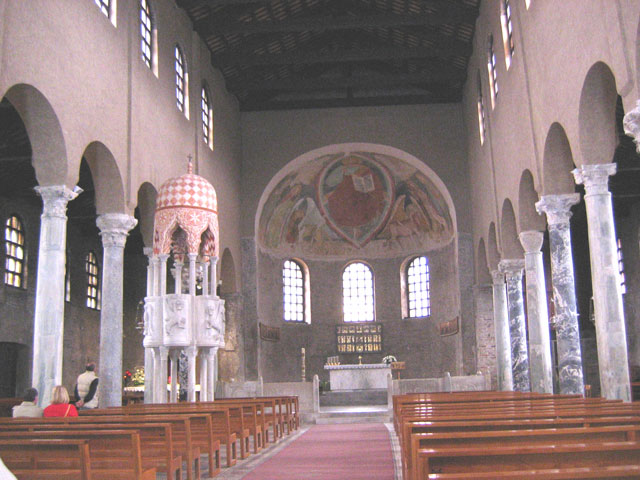|
Hypertimos
''Hypertimos'' ( gr, ὑπέρτιμος, "most honorable one") is an ecclesiastical title in the Eastern Orthodox churches following the Greek liturgical tradition, used to designate metropolitan bishops. The title originated in the 11th-century Byzantine Empire, where the philosopher Michael Psellos held this title at the end of his illustrious career; and in the chrysobull to the Venetians of 1082, the title was also conferred on the Patriarch of Grado This is a list of the Patriarchs of Grado (north-eastern Italy). '' |
Eastern Orthodox Church
The Eastern Orthodox Church, also called the Orthodox Church, is the second-largest Christian church, with approximately 220 million baptized members. It operates as a communion of autocephalous churches, each governed by its bishops via local synods. The church has no central doctrinal or governmental authority analogous to the head of the Roman Catholic Church—the Pope—but the Ecumenical Patriarch of Constantinople is recognized by them as '' primus inter pares'' ("first among equals"), which may be explained as a representative of the church. As one of the oldest surviving religious institutions in the world, the Eastern Orthodox Church has played a prominent role in the history and culture of Eastern and Southeastern Europe. The Eastern Orthodox Church officially calls itself the Orthodox Catholic Church. Eastern Orthodox theology is based on holy tradition, which incorporates the dogmatic decrees of the seven ecumenical councils, the Scriptures, and the teachin ... [...More Info...] [...Related Items...] OR: [Wikipedia] [Google] [Baidu] |
Greek Orthodoxy
The term Greek Orthodox Church (Greek: Ἑλληνορθόδοξη Ἐκκλησία, ''Ellinorthódoxi Ekklisía'', ) has two meanings. The broader meaning designates "the entire body of Orthodox (Chalcedonian) Christianity, sometimes also called 'Eastern Orthodox,' 'Greek Catholic,' or generally 'the Greek Church. The narrower meaning designates "any of several independent churches within the worldwide communion of asternOrthodox Christianity that retain the use of the Greek language in formal ecclesiastical settings". Etymology Historically, the term "Greek Orthodox" has been used to describe all Eastern Orthodox churches, since the term "Greek" can refer to the heritage of the Byzantine Empire. During the first eight centuries of Christian history, most major intellectual, cultural, and social developments in the Christian Church took place in the Byzantine Empire or its sphere of influence, where the Greek language was widely spoken and used for most theological writin ... [...More Info...] [...Related Items...] OR: [Wikipedia] [Google] [Baidu] |
Metropolitan Bishops
In Christianity, Christian Christian denomination, churches with episcopal polity, the rank of metropolitan bishop, or simply metropolitan (alternative obsolete form: metropolite), pertains to the diocesan bishop or archbishop of a Metropolis (religious jurisdiction), metropolis. Originally, the term referred to the bishop of the chief city of a historical Roman province, whose authority in relation to the other bishops of the province was recognized by the First Council of Nicaea (AD 325). The bishop of the provincial capital, the metropolitan, enjoyed certain rights over other bishops in the province, later called "suffragan bishops". The term ''metropolitan'' may refer in a similar sense to the bishop of the chief episcopal see (the "metropolitan see") of an ecclesiastical province. The head of such a metropolitan see has the rank of archbishop and is therefore called the metropolitan archbishop of the ecclesiastical province. Metropolitan (arch)bishops preside over synods of th ... [...More Info...] [...Related Items...] OR: [Wikipedia] [Google] [Baidu] |
Byzantine Empire
The Byzantine Empire, also referred to as the Eastern Roman Empire or Byzantium, was the continuation of the Roman Empire primarily in its eastern provinces during Late Antiquity and the Middle Ages, when its capital city was Constantinople. It survived the fragmentation and fall of the Western Roman Empire in the 5th century AD and continued to exist for an additional thousand years until the fall of Constantinople to the Ottoman Empire in 1453. During most of its existence, the empire remained the most powerful economic, cultural, and military force in Europe. The terms "Byzantine Empire" and "Eastern Roman Empire" were coined after the end of the realm; its citizens continued to refer to their empire as the Roman Empire, and to themselves as Romans—a term which Greeks continued to use for themselves into Ottoman times. Although the Roman state continued and its traditions were maintained, modern historians prefer to differentiate the Byzantine Empire from Ancient Rome ... [...More Info...] [...Related Items...] OR: [Wikipedia] [Google] [Baidu] |
Michael Psellos
Michael Psellos or Psellus ( grc-gre, Μιχαὴλ Ψελλός, Michaḗl Psellós, ) was a Byzantine Greek monk, savant, writer, philosopher, imperial courtier, historian and music theorist. He was born in 1017 or 1018, and is believed to have died in 1078, although it has also been maintained that he remained alive until 1096. He served as a high ranking advisor to several Byzantine emperors and was instrumental in the re-positioning of power of those emperors. Biography and political career The main sources of information about Psellos' life are his own works, which contain extensive autobiographical passages. Michael Psellos was probably born in Constantinople. His family hailed from Nicomedia and, according to his own testimony, counted members of the consular and patrician elite among its ancestors. His baptismal name was Constantine; Michael was the monastic name he chose when he entered a monastery later in life. "Psellos" ('the stammerer') probably was a personal by-na ... [...More Info...] [...Related Items...] OR: [Wikipedia] [Google] [Baidu] |
Patriarch Of Grado
This is a list of the Patriarchs of Grado (north-eastern Italy). ''''. David M. Cheney. Retrieved September 25, 2016"Patriarchal See of Grado" ''GCatholic.org''. Gabriel Chow. Retrieved September 25, 2016 The patriarchate came into being when the schismatic , [...More Info...] [...Related Items...] OR: [Wikipedia] [Google] [Baidu] |
Ecclesiastical Styles
{{Short pages monitor ... [...More Info...] [...Related Items...] OR: [Wikipedia] [Google] [Baidu] |


